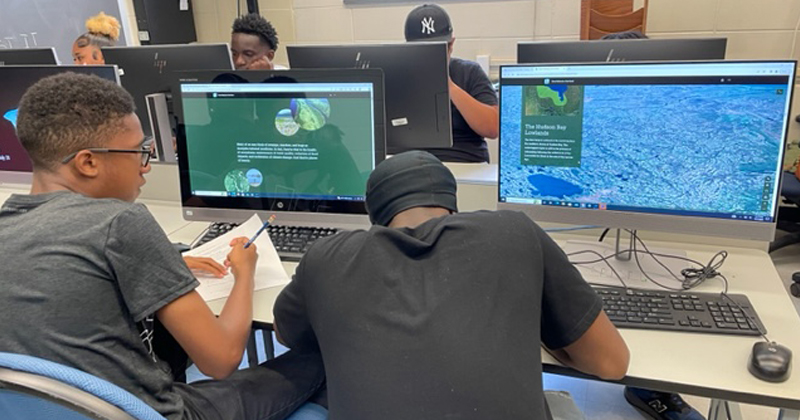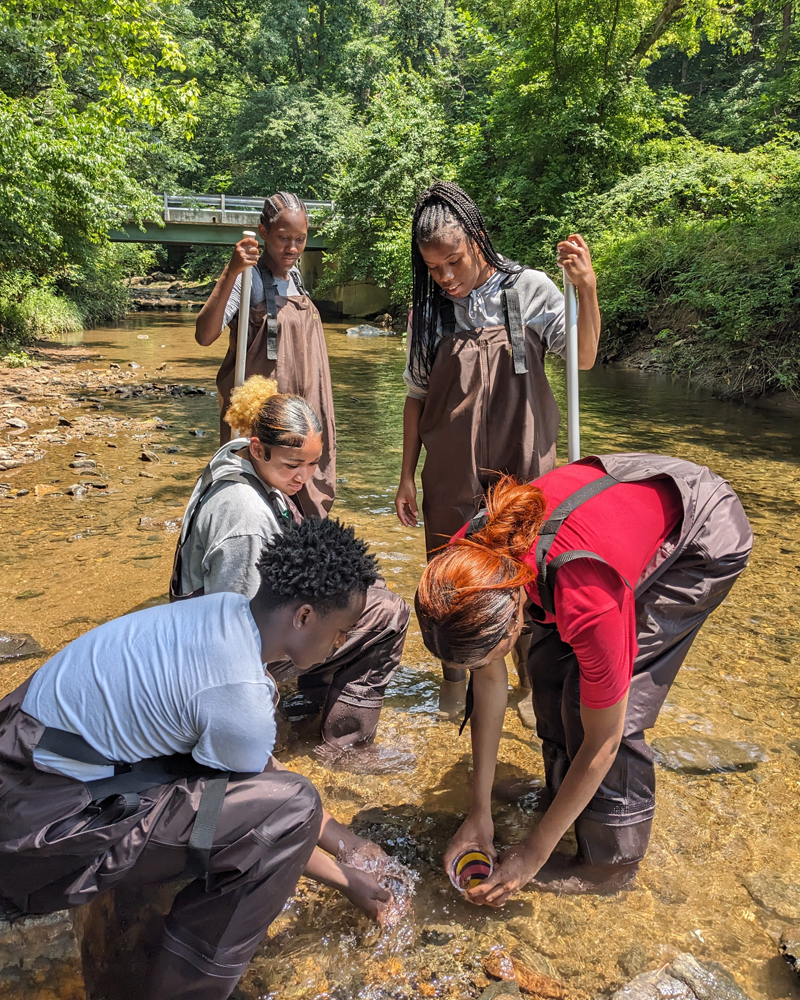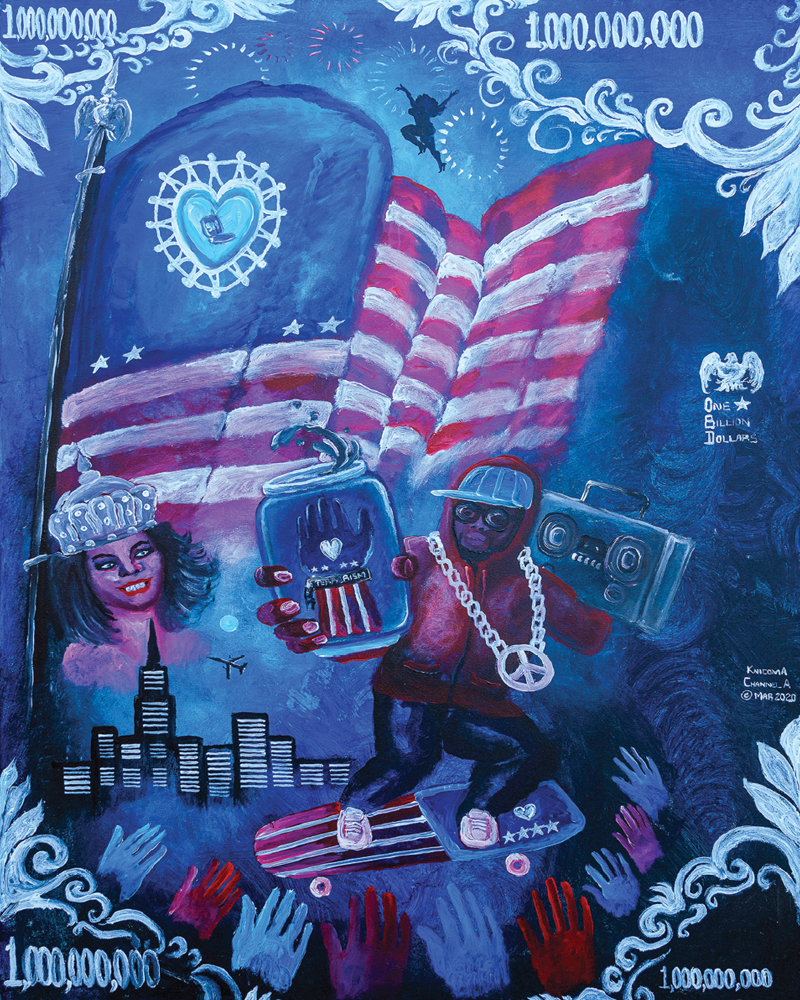


Small grants help partners make big impact
Photos courtesy of Michael Kalmbach, Martha Narvaez and The Nature Conservancy February 28, 2024
Community Engagement program supports Wilmington nonprofit groups
Don’t let the term “mini grant” fool you.
The small-grant program offered by the University of Delaware’s Community Engagement Initiative provides important support for the Wilmington Partnership to fund community-based research projects that advance equity for historically marginalized communities in the city. Grants are $5,000.
“Some grants fund new partnerships that we hope will grow and develop over time,” said Ann Aviles, who supports the work of the Wilmington Partnership as a senior faculty fellow with the Community Engagement Initiative. “And many projects are born from established partnerships between the University and community organizations.”
For example, one of the six grants awarded in 2023 went to the City of Wilmington’s Department of Parks and Recreation to study the impact of the Green Jobs program, which has served youth each summer since 2011.

“It’s a great program,” said Nichole Torrence, Youth and Families program administrator with the city department. “It gives youth who come from an urban setting exposure to things they might not have otherwise. They get to the beach, see sand crabs.”
Torrence works on the program with Martha Narvaez, assistant director and policy scientist with UD’s Water Resources Center. They wanted to know how the program benefited the participants in the longer term.
“Planning the program each year is a big job,” Narvaez said. “When I heard about the mini-grants, I thought, ‘Okay, this is the impetus I need to have some dedicated funding to pull this off.’”
In addition to freeing her time to conduct the study, the mini-grant allowed Narvaez to tap graduate students at the DWRC to help build the survey tool, which will be sent to former program participants this spring.
Responses will help partners understand the longer-term outcomes of the program and will likely shape how the program is administered.
“Have we had any impact?” asks Narvaez. “Where have these kids gone? Have any gone into the environmental field?”
To meet the criteria for a mini-grant, projects must support mutually-beneficial research.
Signe Bell, director of Nonprofit and Community Programs and policy scientist with the University’s Center for Community Research and Service (CCRS), applied for a grant to investigate options for the governance structure of its community partner, the Creative Vision Factory.

The Creative Vision Factory (CVF) is a Wilmington nonprofit that serves individuals on the behavioral health spectrum through the creative arts. Executive Director Michael Kalmbach has a long-standing relationship with the University of Delaware.
Kalmbach, who received his master of fine arts degree from UD in 2008, met Signe Bell in 2013 while enrolled in the Nonprofit Leadership Certificate Program at UD.
With the help of Caleb Mathis, a 4+1 student in the political science program, Bell has worked with the CVF leadership to help them make strategic decisions that would bolster the organization’s future and allow it to continue its peer advocacy work.
“Their skill set is in helping their population,” said Bell. “Organizational leadership, organizational development, that's where we can find resources that will help them.”
Kalmbach said that he relies on this partnership for the success of the Creative Vision Factory.
“The trust that’s been established [with CCRS], that’s where I can go for unbiased support,” he said.
“The mini-grants alone won’t resolve historic issues of harm or inequality,” said Aviles. “But they can, as scholar Eve Tuck notes, begin to suspend damage-centered research and encourage faculty to reimagine research with and for communities.”
The Wilmington Partnership now has a call out for proposals for the next round of mini-grants. Applications are due by March 15, and awards will be announced by March 29. More information is available on the Community Engagement Initiative website.
Contact Us
Have a UDaily story idea?
Contact us at ocm@udel.edu
Members of the press
Contact us at 302-831-NEWS or visit the Media Relations website

